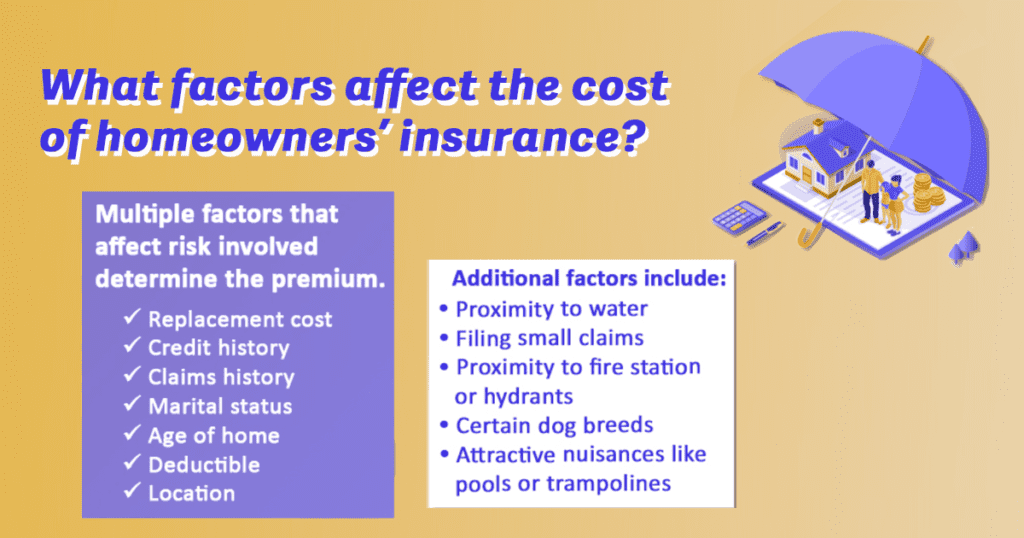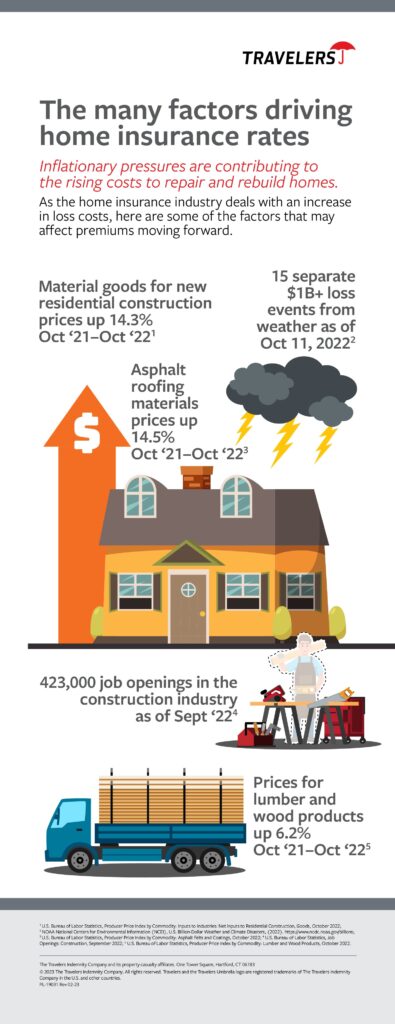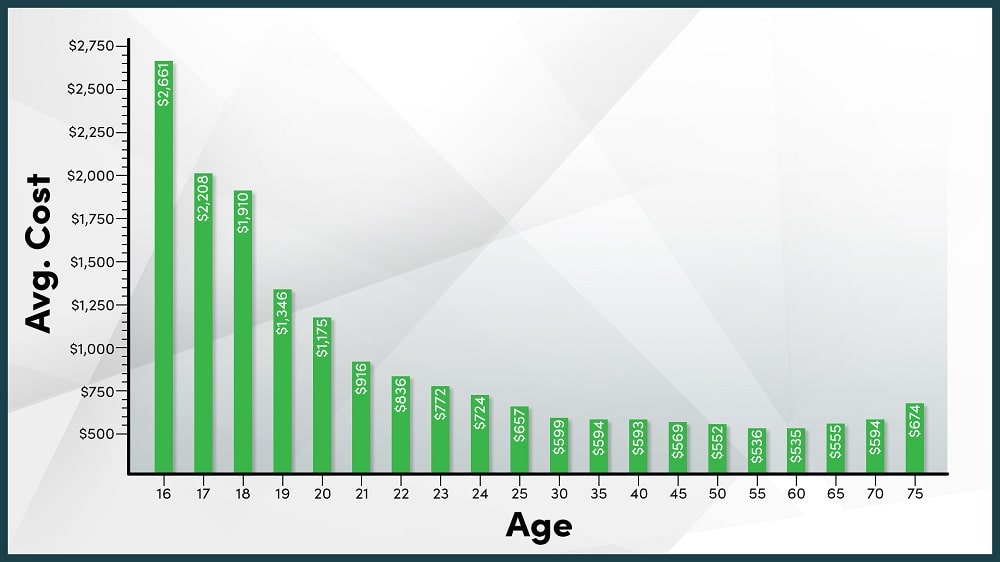When it comes to protecting your biggest investment, understanding the factors that influence the cost of home insurance is key. From the value of your property to its location, there are certain variables that insurers carefully consider. But what are these four major factors and how do they impact your insurance premiums? Let’s explore the key elements that determine the cost of home insurance, allowing you to make informed decisions and find the best coverage for your unique needs.
1. Size and Value of the Property
When it comes to determining the cost of your home insurance, one of the most influential factors is the size and value of your property. Insurance companies take into account the square footage of your house, as well as the replacement cost of the property.
1.1 Square footage of the house The size of your home plays a significant role in determining your insurance premium. Generally, larger homes tend to have higher insurance costs due to the increased risk and potential for more extensive repairs or replacement in the event of a claim. The square footage of your house will be assessed to determine the amount of coverage required to adequately protect your property.
1.2 Replacement cost of the property Insurance companies also evaluate the replacement cost of your property, which includes the cost of rebuilding your home from scratch if it was completely destroyed. This factor considers the materials used, labor costs, and any unique features or upgrades your property may have. The higher the replacement cost, the higher your insurance premium is likely to be.
1.3 Age and condition of the house The age and condition of your house are additional considerations for insurers. Older homes may have a higher risk of certain hazards, such as electrical issues or outdated plumbing systems. Insurance companies may take these factors into account when determining your premium. Well-maintained properties with updated systems and structures tend to be viewed more favorably, potentially resulting in lower insurance costs.


2. Location of the Property
The location of your property is another crucial factor that determines the cost of your home insurance. Insurers evaluate various aspects of the area where your home is situated to assess the level of risk involved.
2.1 Crime rate in the area Insurance companies typically consider the crime rate in your area when determining your premium. Higher crime rates may lead to an increased likelihood of theft or vandalism, which increases the risk for insurers. If you live in a neighborhood with a high crime rate, you may expect to pay higher insurance rates compared to areas with lower crime rates.
2.2 Proximity to fire hydrant and fire station The proximity of your home to a fire hydrant and fire station is also a significant factor. Insurance providers place importance on how quickly emergency services can respond to a fire and how accessible water sources are for firefighting purposes. If your property is located far from a fire hydrant or fire station, it may result in higher insurance costs due to an increased risk of significant property damage in the event of a fire.
2.3 Risk of natural disasters in the region The risk of natural disasters, such as hurricanes, earthquakes, or floods, can greatly impact your insurance premium. Insurers analyze data on the frequency and severity of such events in your region. If you live in an area prone to natural disasters, your insurance premium may be higher to account for the increased risk of property damage or loss.


3. Homeowners Insurance Coverage and Deductibles
The level of coverage and deductibles you choose for your homeowners insurance policy also impacts the cost of your insurance. These factors involve decisions made by you when customizing your policy to suit your needs.
3.1 Coverage limits for property and liability Coverage limits refer to the maximum amount your insurance provider will pay out for a covered loss. When determining your premium, insurers consider the level of coverage you choose for both your property and liability. Higher coverage limits may result in higher premiums, as they imply a potentially higher potential payout by the insurance company.
3.2 Deductible amount A deductible is the amount you are responsible for paying out of pocket before your insurance coverage kicks in. Typically, higher deductibles lead to lower insurance premiums, as you are assuming more financial responsibility upfront in the event of a claim. However, it is important to choose a deductible amount that you can comfortably afford in case you need to file a claim.
3.3 Additional coverage options Homeowners insurance policies often offer additional coverage options, such as coverage for valuable possessions, identity theft, or umbrella liability coverage. Opting for these additional coverages can increase your insurance premium but provides added protection and peace of mind.


4. Personal Factors
In addition to property-related factors, personal factors unique to you and your circumstances can also influence the cost of your home insurance.
4.1 Credit score Insurance companies may take your credit score into account to assess the level of risk associated with insuring you. A good credit score suggests responsible financial behavior, which is viewed favorably by insurers. On the other hand, a lower credit score can result in higher insurance premiums.
4.2 Claims history Your claims history is another personal factor that insurers consider. If you have a history of frequent or costly insurance claims, insurance companies may see you as a higher risk policyholder. This can lead to increased premiums or even difficulty in obtaining coverage from certain insurance providers.
4.3 Occupation and lifestyle Your occupation and lifestyle can also influence the cost of your home insurance. Certain occupations or hobbies may be considered riskier, such as having a home-based business or owning certain types of pets. Insurance companies factor in these aspects to assess the overall risk associated with your policy.
4.4 Presence of safety features The presence of safety features in your home can help lower your insurance premium. Insurance providers often give discounts for homes equipped with security systems, smoke detectors, fire alarms, or sprinkler systems. These safety features reduce the risk of damage or loss, making your property less likely to file a claim.
Understanding the factors that determine the cost of home insurance can help you make informed decisions when choosing coverage and managing your premium. By considering the size and value of your property, the location of your home, the coverage and deductibles you select, and your personal circumstances, you can find the right balance between protection and affordability in your homeowners insurance policy. Remember to regularly review your coverage and shop around to ensure you are getting the best possible deal for your specific needs.









